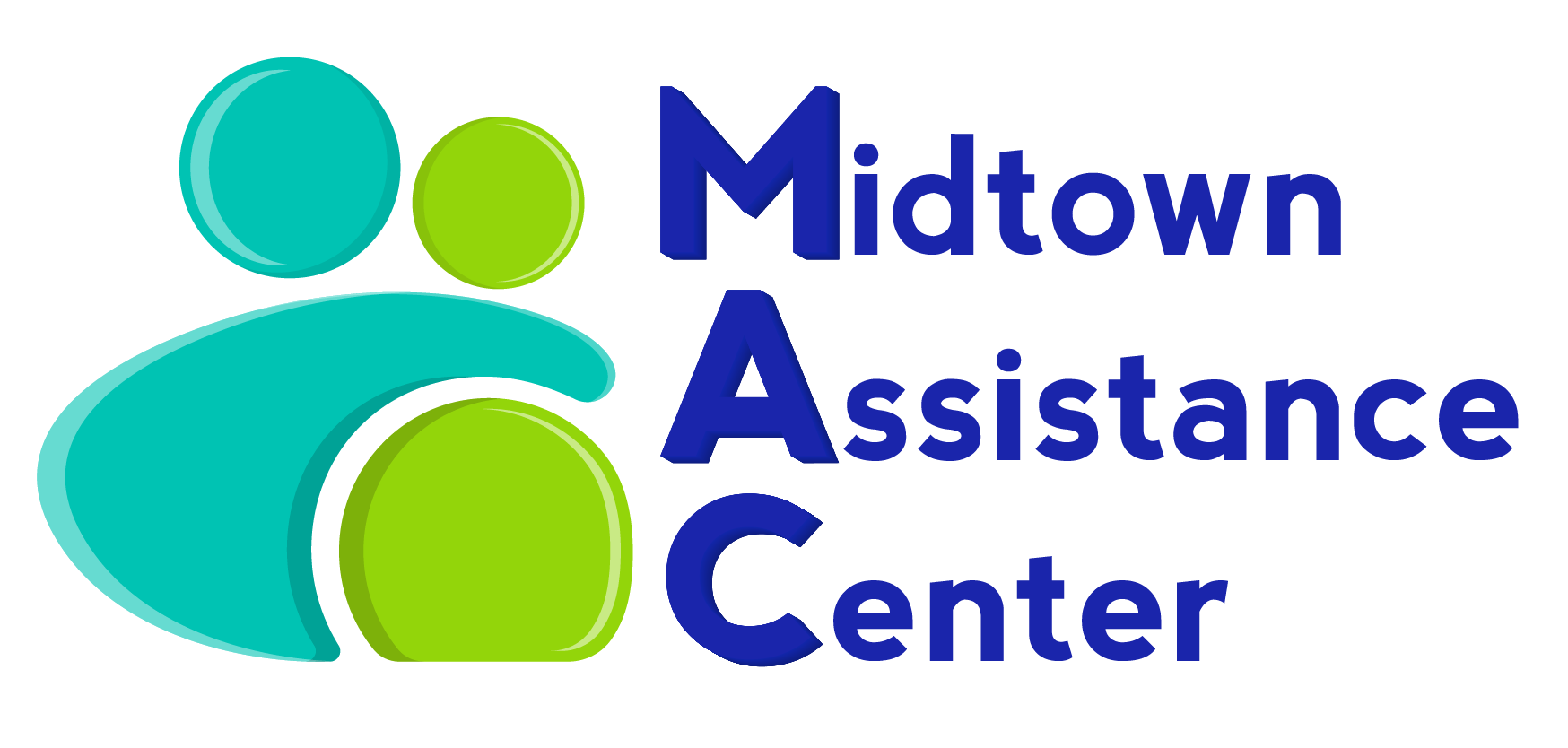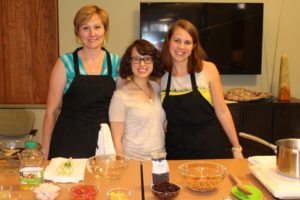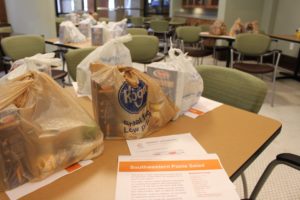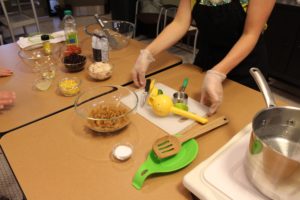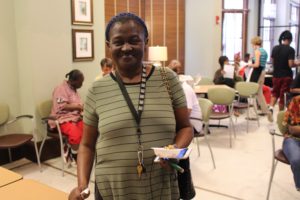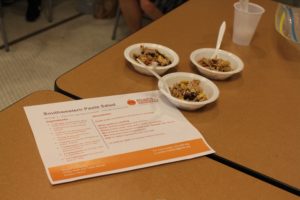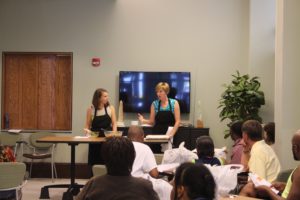Cooking Classes with the Food Bank – Interview with Nutritionist Kristen Barwick
MAC is fortunate to have a strong relationship with the Atlanta Community Food Bank (ACFB). Each week, ACFB delivers a pallet of over five hundred pounds of much-needed food to MAC. On top of that, they also facilitate monthly cooking classes for MAC clients. These classes are led by ACFB interns who dedicate time working in MAC’s pantry and, later in the month, lead the cooking class. We interviewed Kristen Barwick, Registered and Licensed Dietitian and Nutrition Coordinator at the Food Bank, who has been instrumental in MAC’s partnership with the ACFB.
What is your position at the ACFB? How long have you been there and how did you first become involved?
As a registered and licensed Dietitian and the Nutrition Coordinator at the Food Bank, I coordinate and teach nutrition and cooking classes in the Learning Kitchen and also at our partner pantries in the community. I have been here for almost two years. I started as a volunteer in the Produce Rescue Center and I took this position after a fellow Georgia State University graduate shared the position with me.
What are the different ways ACFB interns interact with MAC? How are the interns benefited by working and teaching at MAC?
Our interns work a distribution shift at MAC and perform a cooking demonstration during each rotation. During their pantry shift they have the opportunity to interact with the clients MAC serves. It’s basically a needs assessment that helps them to understand baseline information from MAC clients, so they can generate a lesson and recipe that will benefit client needs. Interns learn about client’s food preferences, how long food from MAC lasts them, foods they wish they could get, about their shopping habits, where they tend to shop and how often, how they like to prepare the foods they receive from MAC and what their transportation source is. This shift is very eye-opening for a lot of our interns who may not have had the opportunity to experience a food pantry or speak with people who rely on one.
“This activity opened our eyes to the tough choices people face daily. We take for granted the convenience of our cars to go where we please when we please. Food stamp benefits often do not last through the month, and it’s through supplemental donations from food pantries some clients can eat to meet their nutritional needs. The people we interviewed are not only brave to seek help when needed but for sharing their stories with us. People by nature are prideful, and it takes a lot of courage to let a stranger in on their reality. ” –Diana Parker and Tiffany Tanksley, ACFB Interns
“Visiting MAC was an enriching learning experience. Hunger is non-discriminatory and sometimes a small chain of events is all it takes for a family to struggle to make ends meet.” -Araceli Estrada, ACFB Intern
How do you feel these monthly cooking classes benefit MAC clients? What do you hope the biggest takeaway for class attendees is?
The goals of our nutrition classes are to encourage MAC clients with simple cooking skills and nutrition information that can benefit their shopping and cooking habits, as well as their physical well-being. All of our recipes follow strict nutrition guidelines to emphasize heart health and include fruits and vegetables (fresh/frozen/canned). We hope they take home a simple recipe that makes them feel inspired and confident to try something new in their kitchen that is healthy and easy. According to the 2014 Hunger Study, 66% of the households that are served by the ACFB have someone with high blood pressure and 40% with diabetes. Shelf stable foods can hold high amounts of sodium and saturated fat that are not beneficial to those who require a lower salt diet. We teach them simple ways to monitor their sodium intake, such as to read nutrition labels, drain and rinse their canned produce and meat and measure salt when cooking.
Do you have a favorite story from your time being involved with MAC?
I have two memories that stick out to me. The first is that I always look forward to seeing Mr. Greg* who has shown up to every class that we’ve hosted. He is very helpful and loves to interject knowledge that he gained in past classes, sparking new thoughts by other clients. The second is going from an average of 5 people per class a few months ago, to expanding the class to over 20 clients in attendance! We had to move our class location to The Imperial across the street to accommodate the great amount of attendees. I know that my interns also have some stories, particularly the most recent two interns, who had the opportunity to learn about a client’s colostomy bag and get a good look at it. They assisted him with making healthy food choices based on his medical need. *Name changed for confidentiality reasons
Anything else you’d like to add about MAC’s partnership with the ACFB?
The staff and volunteers at MAC are imperative to assisting the homeless and under-served members of the Atlanta community. They are friendly and devoted to the greater good and committed to providing these extra nutrition opportunities to our neighbors who need it most. MAC distributes an average of 2000-2500 pounds of food from the Food Bank alone (not including community donations) per month.
